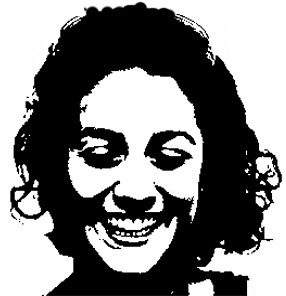ahlan wa sahlan fi ramallah
“unbuckle your seatbelts,” came the instruction from the driver’s seat. despite the meandering roads rolling up and down the hills and the smattering of potholes across the streets, as we pulled into the village on the outskirts of ramallah, we didn’t want to look like the obvious outsiders. so seatbelts came undone, music volume went up and the traces of hebrew, that often pepper palestinian arabic within
on our way to a meeting about a potential partnership between students at israeli and palestinian universities, we took the “back roads,” entering the west bank via a road leading to a jewish settlement and winding our way through small palestinian villages to avoid major checkpoints. we stopped in modi’in illit, a relatively new haredi (ulta-orthodox) settlement built just over the green line, to use an atm. the sun was setting as we entered the west bank and the hills were glowing. but the generic blocks of stacked housing in parallel rows on the hillside seemed superficially imposed and characterless, unable to absorb the fading light. after receiving puzzled looks and cash, we sped out of the town and on our way.
a while back a preliminary meeting occurred at tel aviv university to discuss goals and ideas for this israeli-palestinian student project. currently, no formal framework exists for communication or cooperation between students at israeli and palestinian institutions. this night was intended to be a continuation of that meeting, an incorporation of students from bir zeit university, just outside of ramallah. the original plan was to bring jewish and palestinian israeli students from tel aviv, but the bit zeit group requested a palestinian-only meeting. i put on my american hat and joined the 3 palestinian israelis representing the tel aviv half of the partnership at a café in ramallah, an area israeli citizens (unless in uniform) technically aren’t allowed to enter.
from what I understood of the meeting (combined with what was translated to me afterwards), the bir zeit students are interested in creating this partnership, but mainly to connect the ’48 palestinians (those within israel) with the ’67 palestinians (those in the territories), not to work with jewish israelis. the tel aviv delegation worked hard to convince them that a jewish-palestinian partnership is also important and beneficial, and to assuage their fears of being seen by their peers as “collaborators” for dealing with israelis. eventually they reached some sort of linguistic compromise; a project for uniting palestinians at israeli and palestinian institutions, that will also include jewish students. we set a date for a joint activity, which will hopefully be only the beginning of a larger process.
the meeting ended, but the night went on with more talking, joking, a partial tour of the city, reunions of old friends, tea, coffee and even beer. i couldn’t tell if I was being paranoid or not, but i felt like one man eyed me suspiciously when they introduced me as an american volunteer. amidst both light-hearted and serious banter, i found myself seated next to him around the lively table. i struggled to understand the arabic that whizzed around me and answer questions directed at me. then he turned to me and said, “i know you are jewish.”
i gave a timid smile and small nod of acceptance.
“i knew it when I first saw you.”
again, I had nothing to say.
“ahlan wa sahlan (welcome)”
another smile and nod.
“ahlan wa sahlan bik,” he prompted.
“ahlan wa sahlan bik.”
as the night continued, my arabic skills further declined, but we kept up the energy until we realized it was past midnight and we had a long windy way back to jaffa. the drive that would be 45 minutes if we could use main roads and not deal with checkpoints, would instead take twice that. after navigating back through the same narrow village roads we came on, we cruised down a steep hill which would reconnect us with the “settler road” and a low security checkpoint back into









